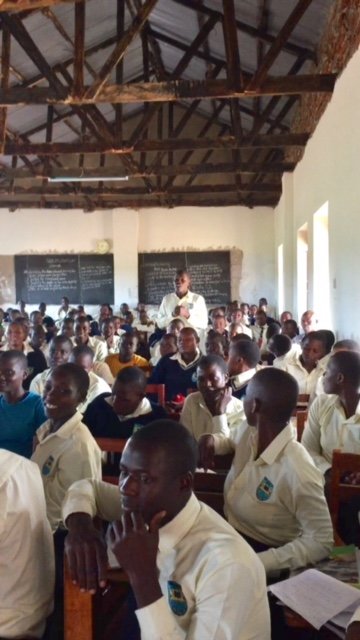By Bhavani Parpia | Founder, ConnecTeach
We asked the students we are working with in Iganga, Uganda to assess the gender disparities in their community. These students are training to become teachers and within two years, will be working with classes of 100-200 elementary students. Girls, in this traditional patriarchal and polygamous society, already face serious discriminatory practices in the home. Teachers who teach in these schools come from the same community, and faced similar challenges when they were growing up, resulting in a seemingly endless cycle of gender discrimination. Working with these teacher trainees to be more effective in the classroom requires breaking down some age-old practices. So, when we asked these student teachers how they would respond to gender discrimination, from attitudes and biases towards girls’ ability to be academically successful to overt discrimination (“girls and women are inferior to boys and men”), their responses were telling: harsh disciplinary action- ranging from “stalking and caning” to publicly humiliating children. While every student did acknowledge that gender bias exists, very few had a clear idea of how to fix it. “Guidance and counseling” were commonly parroted phrases, indicating that these are part of teacher training, but again, there was little indication of what guidance and counseling entailed. Often the very teacher trainees who mentioned guidance and counseling were also the ones who advocated for severe caning and other forms of corporal punishment. A deep-rooted conservative mindset was made evident by numerous biblical references attempting to reconcile the creation story with gender equality, and frequent mentions of a need for females to dress modestly. We were told that girls who dressed provocatively “asked” for trouble. Many trainees, male and female alike, seem to have difficulty finding a place for equality within their faith’s mythos. While recognizing the existence of deep-rooted gender discrimination is a crucial step toward solving the problem, there are many harmful cultural norms that must be addressed before long-term healing can occur. This is why leadership training for teachers is so crucial- for these changes must be led from within, and teachers must be given the skills to do so.
Project reports on GlobalGiving are posted directly to globalgiving.org by Project Leaders as they are completed, generally every 3-4 months. To protect the integrity of these documents, GlobalGiving does not alter them; therefore you may find some language or formatting issues.
If you donate to this project or have donated to this project, you can receive an email when this project posts a report. You can also subscribe for reports without donating.


